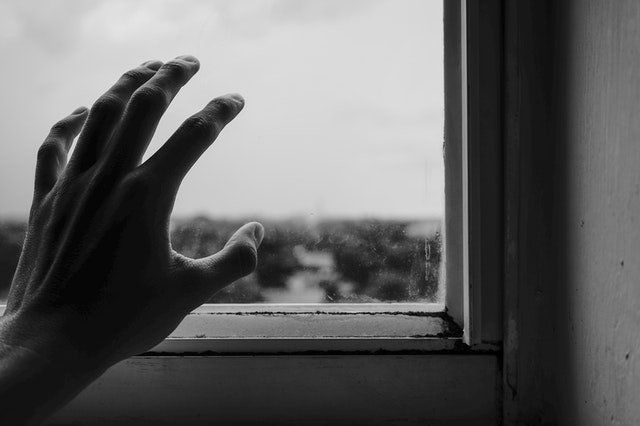The Key Reason Successful People Die By Suicide
In 2018, two masters of creativity, Kate Spade and Anthony Bourdain died by suicide in the same week. Their deaths triggered memories of Robin Williams’ suicide in 2014. Why would these rich, talented, admired, and successful people die by suicide? Ultimately, it was for the same reason. That reason may surprise you. There are steps you can take to help yourself or someone in your life. This post contains triggering material.
General Facts About Suicide
Before we talk about suicide among successful people, there are some general facts about suicide we need to keep in mind:
- In the United States, over 44,000 people a year die by suicide.
- On average, a person dies by suicide in this country every 11 minutes.
- Depression is the number one cause of suicide.
- Most people who successfully complete a suicide attempt are depressed at the time of their death.
- Only half of Americans who are depressed are getting proper treatment.
- Women attempt suicide three times more often than men.
- Men make up 79% of all suicides. They usually use a violent method that has a higher chance of working such as a gun.
- Worldwide, a person dies by suicide every 40 seconds.
Not everyone who dies by suicide is mentally ill. Suicide can be a response to a situation such as getting a serious medical diagnosis, living with a chronic medical condition, losing a job, or having a romantic relationship end.
Someone with a history of mental illness and/or drug abuse is more likely to think about or attempt suicide in response to a life circumstance.
Not every suicide is planned. Some are impulsive. The easier the access to deadly means (e.g., guns, pills), the higher the likelihood that an impulsive suicide attempt will be successful.
When a person commits suicide, it impacts at least 6 people. They are called “suicide survivors” and are at increased risk of eventually committing suicide.

Highly Successful People Die By Suicide All The Time
On January 17, 2014, Madison Holleran, a 19-year-old freshman at the University of Pennsylvania, jumped to her death from the roof of a university parking garage. She was a track star, had many close friends, and was attending one of the top schools in the country.
She had talked about trouble keeping up at school and suicidal thoughts with her parents. Madison was in treatment at the time of her suicide. In the note she left, Madison talked about working so hard to keep up and how she seemed to be the only one struggling. She said she couldn’t do it anymore. Madison told her family she loved them and that she was sorry.
University of Pennsylvania faculty and administration are very familiar with this phenomenon: Look cool, calm, fit, and smart on the outside while struggling like hell on the inside. They call this “Penn Face.” Many other top schools have their own terms for the same phenomenon.
What Puts Successful People At Risk For Suicide?
There seem to be certain factors that contribute to suicide in highly successful people. These include:
- Perfectionism: Whatever they do, it could be done better. It’s tough for them to tolerate poor results or failure because they’re used to succeeding. They also expect to succeed.
- Need to Achieve More: They set a high bar for success. It feels like they never accomplish enough. The bar is always set higher, so any success is quickly dismissed.
- The Pressure to Make it Look Easy: They feel pressure to look like they love their work and life. People want to see that these “champions” push through the sacrifices and can handle the effort. So, that is the public face they put on. The other side of that coin is that they are surrounded by other successful people who look like everything is fine.
- Isolation: Work commitments, money, and stressful schedules make it difficult to maintain friendships, marriages, and relationships with kids. Relationships can become superficial or a means to an end. It’s tough to find someone they can trust and ask for help.
- Fear of judgment: Successful people don’t want to seem weak or “broken.” They worry about what will happen if people find out they are distressed.
- Pressure from others: Successful people are often surrounded by parents, friends, teachers, mentors, and/or colleagues who continuously push them to achieve more, regardless of the price.
The Key Reason Successful People Die By Suicide
You just read a list of factors, not reasons. Ultimately, successful people die by suicide because they are human and they have a human brain. Their brain stopped working the way it’s supposed to.
Our brains are programmed to keep us alive. Think of it as a protective shield or switch. When this protective switch is working properly, we do everything we can to find a way out of the pit.
When someone gets to the point where they feel extremely hopeless and helpless, their survival mechanism can stop working.
At this point, suicide makes complete sense.
They view it as the only option to solve their problem. It may even bring them a sense of relief. That’s what makes it so scary.
After Kate Space and Anthony Bourdain died, I heard and read statements like:
- “They were weak…”
- “They were selfish…”
- “Who would do that to their child…”
- “If it was me, I would have been in therapy every day…”
When people say this, it’s with a brain that has a working self-protection mechanism. Their brain wants to keep them alive.
Here is a common analogy that does a good job explaining the issue:
Asking a suicidal person to come up with a rational alternative to suicide is like asking someone with 2 broken legs to walk to the hospital.
How to Help Someone Who Is Suicidal
Regardless of work, money, title, and status, we are all human. Anyone can get to a place where they are willing to do anything to end their despair. There are certain steps you can take to protect yourself or someone in your life.
If you are having suicidal thoughts, PLEASE TALK TO SOMEONE IMMEDIATELY.
- Reach out to a friend, family member, or colleague.
- If people tell you they are worried, listen to what they have to say.
- Call a crisis hotline. They are open 24/7, 365 days a year, and are staffed by people who are trained to help you. You can call as often as you want. It’s free.
- In the US: Suicide Prevention Lifeline 1-800-273-8255 https://suicidepreventionlifeline.org/
- Get professional help. This may involve seeing a therapist several times a week or going to a more intensive program. The goal is to keep you safe.
If someone in your life is talking about suicidal thoughts, GET THEM HELP IMMEDIATELY.
- Listen to truly understand what is happening.
- Get involved to help them with whatever is happening.
- Tell other people in their life even if they ask you not to. Build a support network for them.
- Don’t accept the answer “I’m fine.” If you suspect something, take action.
- Call a suicide prevention hotline for help and guidance.
- If your friend or loved one is actively in crisis, call 911.
If you need support right now:
- Call the National Suicide Prevention Lifeline at 1-800-273-8255
- Call the Trevor Project at 1-866-488-7386
- Reach the Crisis Text Line by texting “START” to 741741
Please contact us to set up an appointment.
We can help give you information, a map for next steps, and hope that you can have the life you want.
Wishing you the best,
Dr. Levy
Director
Dr. Ronit Levy is a clinical psychologist and director of Bucks County Anxiety Center in Newtown, PA. She specializes in treating teens and adults struggling with anxiety due to Anxiety Disorders, OCD, chronic illness, and life events. Dr. Levy trains and supervises other therapists and presents on mental health in the community.
Anxiety & OCD Blog Latest Posts
About Us
The therapists who practice at Bucks County Anxiety Center work with teens (ages 14 and up) and adults struggling with anxiety and OCD.
All Rights Reserved | Bucks County Anxiety Center







